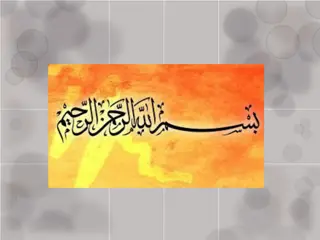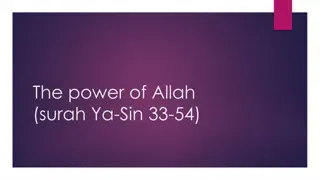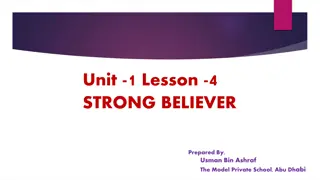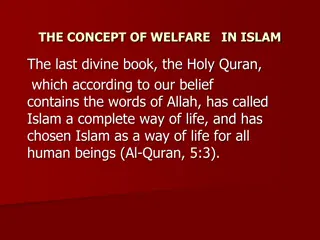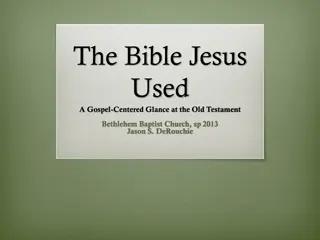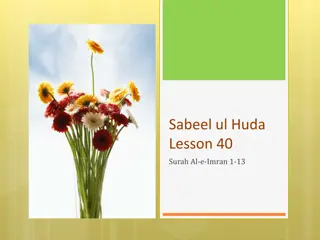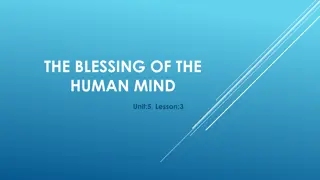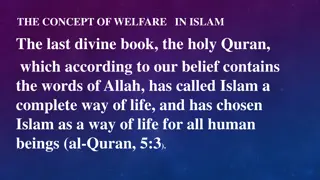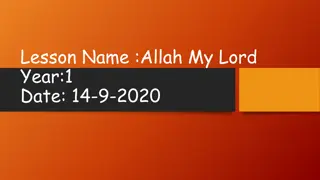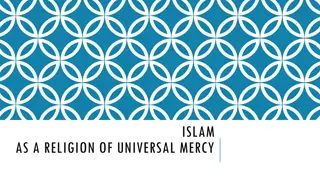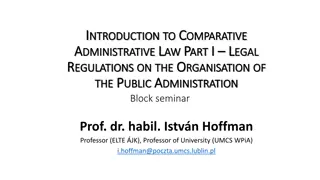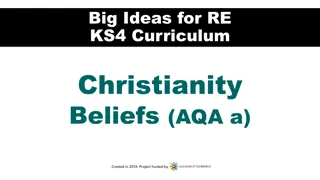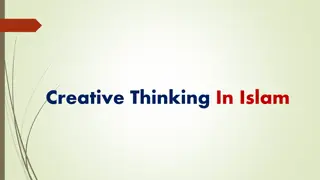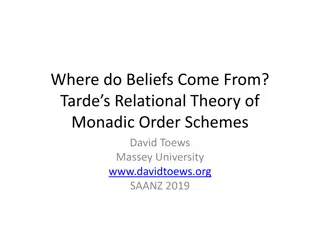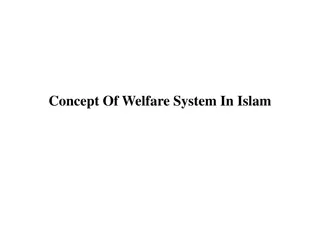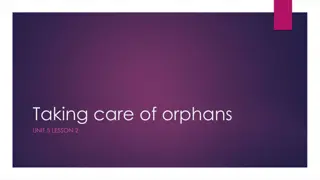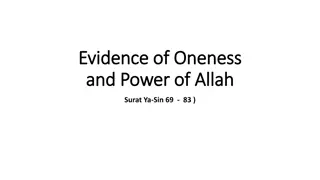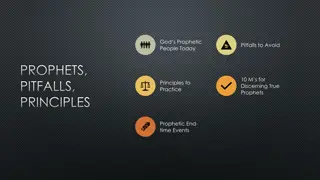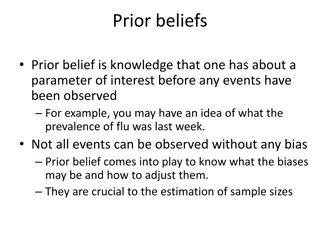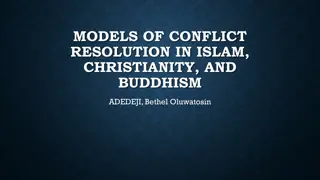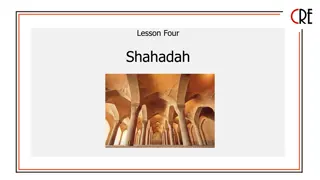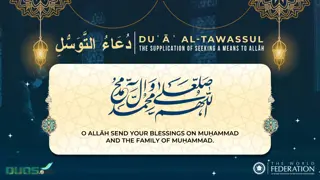Comparison of Beliefs in Sunni and Shia Islam regarding Allah, Prophets, and the Last Day
Sunni and Shia Islam have core beliefs focusing on Allah, prophethood, and the afterlife. While Sunni Muslims emphasize Tawhid and the last day judgment, Shia Muslims also emphasize the belief in the Imams as successors of Prophet Muhammad. Both sects share common beliefs in Allah's attributes and the importance of prophethood in guiding human life.
Download Presentation

Please find below an Image/Link to download the presentation.
The content on the website is provided AS IS for your information and personal use only. It may not be sold, licensed, or shared on other websites without obtaining consent from the author. Download presentation by click this link. If you encounter any issues during the download, it is possible that the publisher has removed the file from their server.
E N D
Presentation Transcript
Malaikah Sunni and Shia Holy books Al Qadr 6 beliefs Five roots Risalah Nature of Allah Akirah
Belief in Tawhid shows that Allah is omniscient, omnibenevolent and omnipotent Allah Believing in Prophets shows that Islam is the first religion and the last. Messengers Believing in the books shows humans how to live. It shows the Qur an is the final word to humanity. Books God can communicate with humans through special beings Angels Muslims will be judged on the last day. This belief affects how Muslims live their daily lives. Last day Life after death Helps Muslims understand that their actions in this world will determine whether they end up in Heaven or Hell. The six beliefs are followed by Sunni Muslims, for them this means that everyone is seen as equal in the eyes of Allah. Not one person is superior to another as they all believe the same thing. The six beliefs for Sunni Muslims also mean that there are no priests or holy men with special authority. whoever disbelieveth in God and his angels and his scriptures and his messengers and the last day, he verily wandered far astray. (surah 4:136) It is righteous to believe in God and the last day and the angels and the book and the messengers. (surah 2:177)
Shia Islam In early Islamic history, the Shia were a movement - literally "Shiat Ali" or the "Party of Ali". They claimed that Ali was the rightful successor to the Prophet Muhammad as leader (imam) of the Muslim community following his death in 632. The five roots of Shia Islam The five roots of Shia Islam are known as Usul-ad-din. These are the 5 basic beliefs of Shia Islam. 1. The first root is Tawhid- the belief in one God. He is God, the one and only. God the eternal, the absolute, he begetteth not nor is he begotten, and there is none like unto him. 2. The second root is the belief in Allah s justice (Adalat), this describes God as being fair and just. 3. The third root is the believing in the prophets of God (Nubuwwah). All the prophets from Adam to Prophet Muhammed. 4. The forth root is the belief in the successors of Muhammed (Imamah). This is the belief that descendants of the prophet were chosen and were given special powers. These are known as Imams. In Shia Islam they have 12 Imams. The last Imam is known as the hidden Imam , basically the Imam had disappeared and still has contact with the Ayotollas. Whoever knows not the Imam of his age dies the death of heathen. 5. The last root is the belief in the day of judgement. Summary: The five roots are the basic principle of Shia Islam. They believe in God s justice, oneness, God s messengers, Prophet Muhammed s successors and the day of judgement. Sunni Muslims believe in most of the five roots, apart from Prophet Muhammad having more successors as the believe nobody can come after the Prophet, as he was the final messenger of God.
Muslims believe in Allah. The word Allah is the Arabic word for God. Tahwid means believing in Allah as the one and only God. Muslims sometimes use the word unity or oneness to explain what they mean. Unity is the idea that everything and everyone is united, or held together. For Muslims, it is Allah who holds everything in the universe together. No one else can do this, except Allah. Everything and every living creature depends on Him. For Muslims, Allah is the one and only one. He is also number one. No one and nothing is like him or can be compared with him. He is unique. What can Allah do? Muslims believe that Allah is Omnipotent (he can do anything), Omniscient (he knows everything), Omnibenevolent (He is all-loving), and Omnipresent (he is everywhere at once). What is Allah s personality like? The Qur an helps Muslims to understand what Allah is like because it uses many different names to tell people about the character of Allah. There are 99 names for Allah in the Qur an. Two names that appear very often are compassionate and merciful . When Muslims say that Allah is the Compassionate and the Merciful , they mean that Allah is kind in the way he deals with people; Allah forgives people, Allah loves them, Allah supports them, and Allah cares for them Even though they have all these names for Allah, Muslims still believe that Allah is too great to be described, and that Allah is transcendent (beyond our understanding). However, as well as being transcendent, Allah also interferes with what happens in the world; Allah sends prophets and angels, gives holy books and causes miracles. Muslims use the word immanent to describe Allah acting in the world. The word Allah in Arabic Islamic prayer beads are used to count the 99 names of God. Each set contains 33 beads, so they are counted three times.
Risalah means the Muslim belief about the prophets of Allah. The channel of communication. Muslims believe that Allah chooses his prophets. He chooses those who can bring his message accurately and accordingly to their life too. These messengers are known as prophets. This is known as risalah. Most Muslims believe that Allah sent 124,000 Messengers and only 25 are mentioned in the Quran. Muslims believe that these messengers are important because they brought the guidance of Allah. All the prophets came with the same message. Messengers are believed to be sinless, but they were ordinary human beings who God had chosen to give a message. Most Muslims believe that the Prophets were sinless, after they had been called by God to be messengers. This is why a Muslim would generally say peace be upon him after mentioning a prophets name. Each prophet was given Allah s word for their generation, sending the message of Islam. However each time it got distorted or forgotten, so Muslims believe Prophet Muhammed PBUH had been given the Quran so it could never be distorted.
Adam Ismail He was the first prophet and the first man. Allah had sent him and his wife (Hawwa) to look after the earth as vice regents. They lived in the garden of Eden, until they disobeyed God by listening to Iblis. God made them leave the garden of Eden. They were then placed on earth. They asked God for forgiveness and God had given Adam his guidance. As a sign of his thanks to Allah, Adam built a house for God in Makkah, called the Kaaba. Eldest son of Ibrahim. Prophet to the Arabs. He encouraged Ibrahim to sacrifice him, showing his obedience. Musa Musa is mentioned in the Quran more times than any other Prophet. Musa was born a Jew but brought up by a Pharaoh's wife. God called him back to Egypt and lead the Jews out of Slavery. He was given the Tawrat. Ibrahim Ibrahim rejected polytheism (believing in more than one God.) He broke down the idols which people had worshipped and people tried to burn him, Allah had saved him. Abraham was not a Jew nor yet a Christian, but he was true in faith and bowed his will to God s, which is Islam. Surah 3 Dawud Dawud was the great king of Isreal. He was given the Zabur, because the Tawrat had been destroyed. Abraham was commanded by God to sacrifice one of his sons, Allah was testing Ibrahim to see how committed he is to God. Allah replaced his son with a sheep. Ibrahim was given the Sahifah scrolls, where Ibrahim was told to deliver the message of the nations. Before this we wrote in the Psalms, after the message given to Moses.
Isa Isa and his mother are mentioned in the Quran many times. Isa was conceived by a the power of Allah. Isa performed many miracles. Isa took to heaven from the cross, so he never died. Isa was given the Injil (Bible). The Quran makes it clear that he was only a Prophet and not the son of God Christ the son of Mary was no more than an apostle: many were the apostles that passed before him. Muhammed Muhammed was called by Allah to bring the final message. His message must be followed and those that follow it will be rewarded. His life was a perfect example to follow. Allah sent a message to him that could not have been distorted. Muhammed is the apostle of God and those that are with him are strong against the unbelievers, but compassionate amongst each other.
Sahifa scrolls These were given to Prophet Ibrahim. These were distorted. But we have already given the family of Abraham the book of wisdom, and conferred uoon them a great kingdom. Quran 4:54 Tawrat Was given to Musa, although it was distorted, some parts remained in the Torah- Old testament. Injil Isa has been given the holy book Injil. Muslims believe that the Injil was not the same as the new testament. Muslims believe that the Gospels are human records of what people remembered. The main distortions of the Injil contained in the new testament are: Isa was the Son of God, when he was really the Prophet of God. Isa died on the cross where Muslims believe he was taken to heaven. Christians removed the part of the Injil which foretold the coming of Prophet Muhammed. Quran Muslims believe that they needed his word revealing in a new way because it had been distorted, people had ignored the message and people didn t know what the Quran was. This meant that the Quran had to be revealed to a prophet that could not read or write, so the words could be remembered and recited. The only message would be the Quran, so could not be distorted. Prophet Muhammed had an excellent memory, so remembered every revelation, which he got people to write them down.
Muslims believe that Allah is far too holy to directly communicate with humans. The Quran teaches that Allah created angels (Malaikah) as immortal beings without freewill. Angels are male and have wings. Angels obey Allah s commands and never commit any sins. Angels are the ones that pass messages along from God. When God had created Adam, God had ordered the angels to bow down to Adam. Muslims believe that the Iblis (Shaytan) was a Jinn that refused to bow down to Adam and he was sent to hell. The Quran says that Iblis begged Allah to postpone his punishment for disobedience until the last day and this is why the Iblis is able to tempt humans to go against Allah. (Surah 7) Jibril- Mika il- He is the chief angel, whose main role is to deliver God s message to the Prophets. Jibrail revealed the Quran to prophet Muhammed, he gave revelations to Prophet Muahmmed over 23 years. Is the guardian of heaven, protecting it form evil. He also ensures that Humans are nourished and sends rain. Izra il Is the angel of death, he takes your soul up. The Angel of death put in charge of you, you will take your souls: then shall ye brought back to your Lord. Surah 32
The Muslim teachings about Akirah are that the people will be brought before Allah, at the end of the world for final judgement. Allah will judge everyone on the basis of their beliefs and actions, and reward or punish them accordingly. But surely people can only be punished for something they did of their own free will? People can only be punished for actions of which they are responsible. There are two Muslim beliefs about this: Shia Muslims believe that Allah created humans with freewill. It is the responsibility of the humans to use their free will properly. If they misuse their free will, they will be disobeying God, therefore can be judged on the last day because they are responsible for their actions. Sunni beliefs are slightly different. Sunni Muslims believe that Allah knows what we will do before we do it, as Allah is omniscient. Allah knows what people will do, but they have to do it out of their own free will. By believing in al-Qadr we testify that Allah is the absolute controller of the affairs of his universe. We are unable to understand and interpret many of Allah s actions.. We are responsible for our own actions. This was something that was said by a Sunni Scholar. The implications of the belief of al-Qadr for Muslims today. Allah has a master plan for everything, nothing happens without Allah s permission. Although they may face present sufferings, Muslims do not need to worry about their present future because God is in control. All suffering must be accepted in order to have a good outcome in the end. Muslims cannot sit back and God take responsibility for things. Muslims have freewill, although God plans our lives, Muslims make their own choices and should take responsibility for their own actions.
Muslim beliefs about paradise: Gardens of perpetual bliss, they shall enter there, as well as the righteous among their fathers, their spouses and offspring. Surah 13 Allah hath promised to Believers, men and women, gardens under which rivers flow, to dwell therein, and beautiful mansions.
Muslim beliefs about hell Hell is Jahannam, and is portrayed as the place of fire and torture. Some Muslims believe that the bad will only stay in hell for a short amount of time. Other Muslims believe that people stay in Hell forever. Why is life after death important for Muslims? The Quran teaches that there is a life after death. It is one of the six beliefs. Life is a test a from God. Those who pass the test will be rewarded with heaven. It gives people meaning and purpose in their lives. Similarities between Christianity and Islam There is a life after death. God will judge humans based on how they have lived their lives. Heaven is a paradise, where God resides. The good get rewarded and the and get punished. Catholic Christians and Muslims believe the last day will bring the world to an end. They also believe the dead will get resurrected on the last day. Differences between Christianity and Islam Christians do not believe that the dead need to be buried quickly. Christians can be cremated. Some Christians believe in immortality of the soul and not resurrection. Some Christians do not believe in the last day. Catholics believe that those that are not rady for heaven will go to purgatory so they can be cleansed of their since before the last day.


